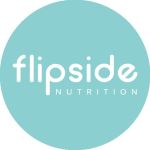Pregnancy is a time of exceptional growth, change, development and sacrifice. The female body undergoes an enormous transformation while it focuses solely on, and prioritises the nourishment of the foetus. Ultimately, your baby is first in line for any nutrients. Therefore, the Mother is often lacking.
Ensuring optimal nutrition is never more important than before, during and after pregnancy.
The first 1000 days of a baby’s life includes preconception until a child’s second birthday. This time frame can affect metabolic health and predict likelihood of disease later on. This pivotal window provides the perfect opportunity to develop a strong immune system, healthy brain development and optimal growth.

Instead of eating for two, think boosting nutrient intake for two.
Folate
Folate is a B vitamin found in kale, spinach, broccoli, fruit and legumes. Folic acid is the synthetic version of folate found in supplements and is added to foods.
Inadequate folate can lead to poor brain development and neural tube defects such as spina bifida. Increased requirements for folate start prior to conception. For this reason, 400µg of folate is recommended three months prior to conception. Folate requirements jump to 600µg once pregnancy is established.
Calcium
Good sources of calcium include:
- Dairy foods
- Canned salmon with bones
- Almonds
- Dried figs
- Fortified plant-based milks
- Spinach
Calcium is particularly important during the third trimester as the baby starts to develop and strengthen it’s bones. During pregnancy your body adapts to absorb more calcium from food, and uses Vitamin D to aid absorption. If you do not eat dairy or feel that your calcium intake is inadequate, a Calcium supplement may be necessary. Calcium requirements during pregnancy are the same as prior to conceiving 1000mg for 19-50 year old women.
Iron
Iron is necessary for the production of red blood cells for both mother and baby. Iron-rich food sources include red meats, chicken, eggs and fish. Other sources of iron are beans, lentils and some vegetables. A mother’s blood volume increases up to 50% during pregnancy. As a result, iron requirements are an extra 9mg daily.
Therefore, Iron requirements are 27mg/day during pregnancy. Iron absorption improves during pregnancy, however anaemia is a common ailment during pregnancy. This is true even for women with adequate iron stores prior to pregnancy.
If anaemia occurs, an iron supplement, or a pregnancy multivitamin that includes iron would be necessary. Iron levels can be checked during routine pregnancy blood tests ordered by your Obstetrician or GP. Vitamin C aids iron absorption.
Try pairing broccoli with lamb chops, or a glass of fresh orange juice with grilled fish.
For more tailored advice on what to eat during your pregnancy journey, I am available for face-to-face consultations in Brisbane. Being a Mother of two young girls, I can relate to the hormonal changes and food cravings during pregnancy.
Visit Eat For Health for further information.
As always, thanks for stopping by, Madeleine (THG).






